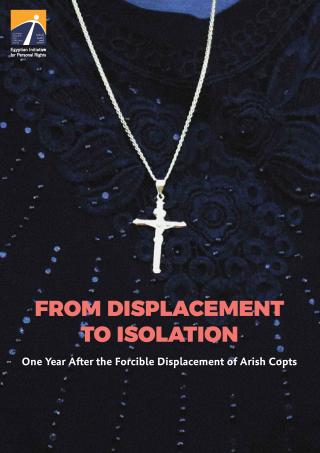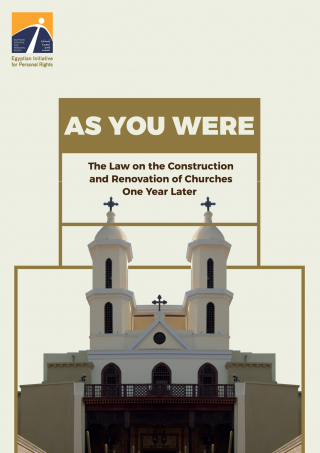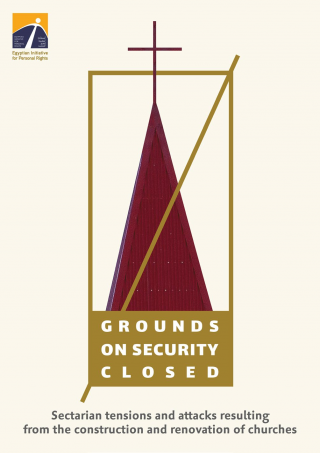The EIPR found that from September 28, 2016, when the church construction law was issued, to April 2018, state institutions have shuttered 14 existing churches that were hosting religious services prior to the closure orders. Four of these churches were closed this year, with Copts denied access to them and prayer services in them prohibited.
Files: Coptic Church
It has been one year since Coptic citizens were displaced from Arish amid violent attacks that targeted many inside their homes. In this report the EIPR documents the living conditions of displaced Copts, looking at any assistance offered by state institutions and whether any genuine measures have been taken to realize justice and provide restitution to these citizens.
A year after the displacement, the security situation remains unstable and Christians are not afforded a minimum level of protection. The displaced families are therefore unable to return to Arish, and in some cases people who decided to return were targeted and killed by masked men.
The Egyptian Initiative for Personal Rights is deeply concerned about the judgment issued yesterday by the Atfih Misdemeanor Court in the Giza governorate in case no.
Introduction
On September 28, 2016, Law 80/2016 was adopted to regulate the construction and renovation of churches and their annexes. State officials, parliamentarians, and some sectors of the Christian ecclesiastical leadership heralded the new law as a solution to the long-standing difficulties of building or renovating churches.
The study includes an analytical section and two annexes. The analysis reviews statutes regulating church construction, significant court rulings of relevance, and their impact on the legal status of existing churches and various official licenses. The study then looks at the types and frequency of sectarian attacks linked with the exercise of the right of worship, offering a quantitative analysis of the 74 sectarian attacks seen in Egypt from January 25, 2011 to August 2016. It describes the flashpoints of tension, the profile of attacks and their relationship to political parties or governing forces, and whether patterns changed in tandem with changes in regime.
The study includes an analytical section and two annexes. The analysis reviews statutes regulating church construction, significant court rulings of relevance, and their impact on the legal status of existing churches and various official licenses. The study then looks at the types and frequency of sectarian attacks linked with the exercise of the right of worship, offering a quantitative analysis of the 74 sectarian attacks seen in Egypt from January 25, 2011 to August 2016.
The Egyptian Initiative for Personal Rights has criticized the authorities’ handling of the case of Coptic students who were forcibly displaced from al-Arish in North Sinai last February.
The Egyptian Initiative for Personal Rights expresses its deep concern about the House of Representatives’ rushed approval of the law regulating the construction and renovation of churches.
As part of efforts by the Egyptian Initiative for Personal Rights to promote freedom of religion and belief and associated rights—most significantly, to build and renovate churches and religious structures—it is launching a campaign titled “Closed on Security Grounds: for a Fair Law on Church Construction.”






